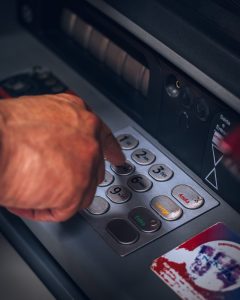Forex trading can be a daunting task, especially for beginners who are just starting out. One of the most important aspects of successful forex trading is the ability to filter trades effectively. Filtering trades is the process of screening out trades that do not meet your criteria, leaving you with high-quality trades that have a higher probability of success. In this article, we will discuss how to filter forex trades to increase your chances of making profitable trades.
1. Define your trading strategy
The first step in filtering your forex trades is to define your trading strategy. Having a clear trading strategy helps you to filter out trades that don’t meet your criteria. A trading strategy is a set of rules and criteria that you use to enter and exit trades. It should be based on your trading style, risk tolerance, and financial goals.
Some traders prefer to use technical analysis, while others prefer to use fundamental analysis. Technical traders use charts, indicators, and patterns to identify potential trades, while fundamental traders analyze economic and political events to identify trading opportunities. Once you have defined your trading strategy, you can use it to filter your trades.
2. Use technical analysis to identify potential trades
If you prefer to use technical analysis to identify potential trades, you can use a variety of tools to filter your trades. You can use indicators such as moving averages, RSI, MACD, and Bollinger Bands to identify potential trades. These indicators can help you to identify trends, overbought and oversold conditions, and potential reversals.
You can also use chart patterns such as triangles, head and shoulders, and double tops and bottoms to identify potential trades. Chart patterns can help you to identify potential breakouts, trend reversals, and support and resistance levels.
Once you have identified potential trades using technical analysis, you can filter them further based on your trading strategy. For example, if you have a trend-following strategy, you may only want to enter trades that are in the direction of the trend.
3. Use fundamental analysis to identify potential trades
If you prefer to use fundamental analysis to identify potential trades, you can use economic and political events to filter your trades. For example, if you are trading the EUR/USD currency pair, you can monitor economic data releases from the Eurozone and the United States.
You can also monitor political events such as elections, trade agreements, and central bank announcements. These events can have a significant impact on currency markets and can create trading opportunities.
Once you have identified potential trades using fundamental analysis, you can filter them further based on your trading strategy. For example, if you have a news trading strategy, you may only want to enter trades that are based on significant economic or political events.
4. Use risk management to filter your trades
Risk management is an essential aspect of successful forex trading. You can use risk management tools to filter your trades based on your risk tolerance. For example, you can use stop-loss orders to limit your losses and take-profit orders to lock in profits.
You can also use position sizing to manage your risk. Position sizing is the process of determining how much of your trading account to risk on each trade. By using proper position sizing, you can limit your losses and increase your chances of making profitable trades.
Conclusion
Filtering forex trades is an essential aspect of successful trading. By defining your trading strategy, using technical and fundamental analysis, and implementing proper risk management, you can filter out low-quality trades and focus on high-quality trades that have a higher probability of success. Remember to always trade with discipline and patience, and never risk more than you can afford to lose.






